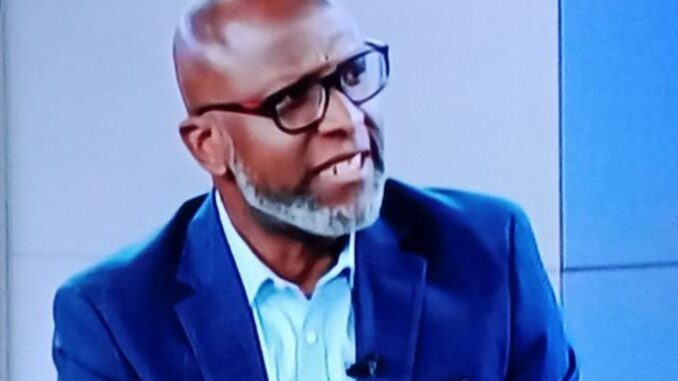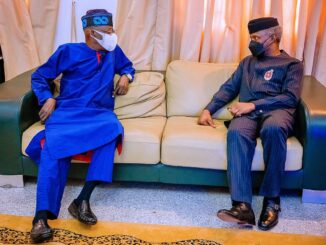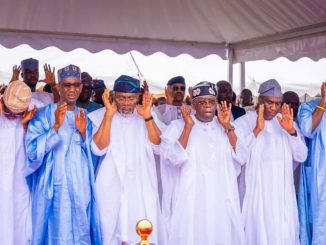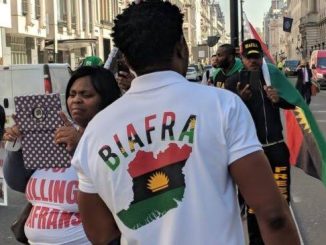
By Oluwafemi Popoola
Veteran journalist and former presidential spokesperson, Laolu Akande, has spoken on how the World Bank and recently, the Africa Network For Environment and Economic Justice (ANEEJ), lauded the integrity of the National Social Register put in place by the former Buhari/Osinbajo administration.
Akande clarified that the composition of the National Social Register was done primarily by the states of the federation under the direct supervision of the governors, asserting that the process leading to the outcome of the register was not only comprehensively done, it was fair, credible and objective.
He said that the World Bank and other development partners monitored the processes that led to the creation of the deserving people’s register, dismissing the notion that many state governors were not carried along, clearing the air on the recent controversy raising integrity questions.
Akande, who was the spokesman to the former Vice President of Nigeria, Prof Yemi Osinbajo, SAN, made the clarification on Wednesday, July 26, 2023, while speaking during Channels Politics Today anchored by Seun Okinbaloye.
Recalled, on July 20, the National Economic Council (NEC), presided over by Vice President Kashim Shettima, resolved to dump the National Social Register compiled under the immediate past President Muhammadu Buhari, claiming it lacked credibility.
Speaking to journalists after the council’s meeting, Chukwuma Soludo, governor of Anambra State, said NEC agreed that states should develop their own registers using formal and informal means.
ALSO READ: Stories behind Nigerians’ applause for Osinbajo, by Laolu Akande
But Akande, who was a regular attendee of NEC meetings, while speaking further on the matter said, “I think there are two important issues here and the first is that the National Social Register as a matter of fact is not the property of the Federal Government. If you look at the way it was developed, it is actually the state governors that were most instrumental in developing those registers in their states.”
Continuing, he said, “So what you have at the national level is the Federal Government now putting it together from all the states.”
“The second point is that if you look at what has happened between 2015 and now (2023), it is unlikely that you would find a state government that is not using those registers as we speak for their own local programmes. As we speak, virtually every state government is using the database that they have created for different programmes that are not even those from the Federal Government.
“So it’s possible indeed that the new set of governors and the ones that are not new, maybe there is some kind of a blind side I’ve not been able to figure out and there are also people that have argued that it is possible that the governors really want to have more control of the resources that is going to be coming from the Federal Government.
“It may be an issue of the governors wanting to have more control about where the money goes to and not necessarily a problem with the register and I guess you know I don’t know this for a fact, but it seems and the theory has been tabled that it is probably a situation of calling the dog a bad name just so you hang it.”
Speaking on how the beneficiaries were drawn from all the 36 states of the federation, Akande said, “The composition of the list is fairly and actually very comprehensively objective process where enumerator will go to communities and each community determines and defines what it is that they consider to be poverty and then draw up the list from the community to the local government to the state where the register is drawn.”
“And then it goes back to the Federal government and in time of disbursement, what happens and what people have seen is that the money goes directly from the covers of the Federal Government to the bank accounts of the beneficiaries.
“So, you don’t have the opportunities where there can be some kind of third party interference, I think it is a process that even the World Bank has come out to explain the credibility of this thing that we were part of it as a matter of fact, Africa Network For Environment and Economic Justice (ANEEJ), issued a statement over the weekend about it.
“There it said, look it is on the basis of this register that Nigeria was able to take back about 500 hundred million of the Abacha loot because the Swiss Court had insisted that, look, we are returning this money and we want to be sure that it goes back to the Nigerian people. It is the social register that enabled that to happen,” Akande concluded.




